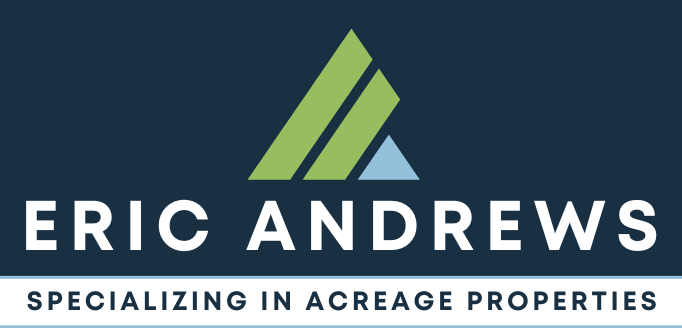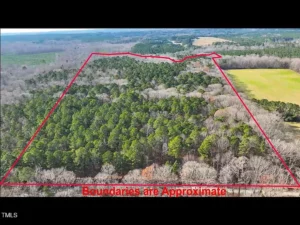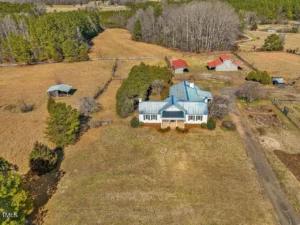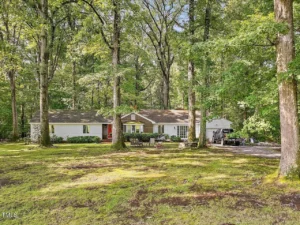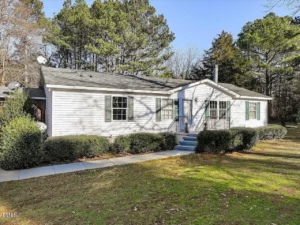People are flipping land, it’s called development and people are flipping it. So, if you were to get a 20 acre tract right now, depending where it is in Chatham County.
First and foremost you want to see how many potential lots can we get out of it. We have municipal sewer in Pittsboro, Siler City and Goldston. So, chances are, the piece of property you find is not going to be in one of those three municipalities, so chances are it’s not going to have access to public wastewater treatment. You’re not going to have sewer.
In Chatham County, if you don’t have sewer, you have to have a septic. Septic systems are very common. Chatham County has a mix of soils. Some are very good, some are very bad and the price that you can get for those lots is mainly dependent upon what particular type of system it gets approved for. So, if it gets approved for a conventional system, $6,000, that’s great, that’s standard, everybody’s happy. That’s how much it would cost to hook up to a sewer anyway. So that’s a standard build-out cost. But if you get one of these engineered spray low pressure systems that are $25,000 even $50,000, that can put a huge dent into what you can flip a piece of property for because the expense.
Do most people flipping land want to sell it as a subdivision?
You’re not going to find too many pieces of land that you could buy at one price and turn it the other price, because it has full exposure to the market.
A rare case: I once bought ten acres out on the river and I put in a road myself, a dirt road with a chain saw and I weeded around the riverbanks, you know. Obeying all the vegetation buffer laws and I cleaned it up and got rid of some dead trees and some stumps and I bought it $40,000 and just for giggles. This is before I even got my real estate license. I put an article in the News and Observer for $100,000 just to see what would happen and it sold over the weekend for $96,000. That’s when I got the bug. I said I need to get in real estate. And I’ve done some development too. I’ve done five subdivisions myself where either I was the partner, complete owner or a consultant for the subdivision. And there’s been some nice margins.
Proforma
One of the things that we talk about when we’re doing a proforma for a piece of land. A proforma basically means what is the retail potential of this property, so we work backwards. And going back to that 20 acres. If I had four, five acre lots, and I could sell those five acre lots for $75,000 each, $15,000 an acre, then that 20 acre piece is worth about $5,000 an acre for me. So one of the formulas that we use, it’s called a third, a third, a third. So if the build-out is $15,000 an acre, I want to purchase it for $5,000 an acre, because I am going to have $5,000 worth of improvements. I’ve going to have soil evaluations. I’m going to have Perc permits. I’m going to have surveys, I’m going to have legal expenses, I’m going to have recreational fees for the county, I’m going to have recording fees for the county. I’m going to have to write and draft covenants. I might have write and draft a road maintenance agreement and I might have to put in roads. I might have erosion control plan, culverts. There’s a lot to do, there’s a lot to do.
And then you have to clean up the property and then you have to pay a guy like me to sell and market it for you. So that’s a good rule, a third, a third, a third. If it has a retail potential of $15,000 an acre, then you want a raw land cost of about $5,000 an acre. Those are hard to find right now, you know. Not all of them have that kind of potential. Certainly if you were to buy a piece of property right now and hold on to it for five or eight years, then it’s going to be a slam dunk, I think. I mean, because we have so much appreciation, we have so many people coming out here.
“Big tracts” are currently around 70 – 110 Acres:
Larger tracts are becoming so increasingly rare. I had an appraiser just call me yesterday and they’re like, Eric, where are all the big tracts? And, they’re not in Chatham anymore. It’s so extremely rare to find a big tract in Chatham County right now. A big tract in Chatham used to be 300 to 1,000 acres. That was a big tract of land. Now, a big tract of land is like 75 to 120 acres. It’s really changed a bunch. The biggest thing is first of all, no bank is going to lend you money to do a development or subdivision. It doesn’t matter how good your credit is, they’re not doing it. So this is a cash game. You can get a home equity line if you want, but we’re talking cash. And not only is it cash to buy the land, but then it’s cash to develop the land. That’s what we call horizontal infrastructure. You’re just making the land and improving it so these are subdivisions.
And the last way to make money, getting really tricky and I’ve done this before, is you can subordinate your land, which means you’ve divided it. You have a $75,000 retail piece of land. You can let a builder build on that land and say, when you sell the house, I get the $75,000. So it helps the builder out because he doesn’t have to buy the land. It helps you out because you’re getting full price for it and people are much more excited about buying a house and five acres than just five acres. That’s called subordination. I’ve done that before too. That’s a nice way to make sure you get your profit margin that you want.
When you develop these properties, the thing that’s tricky is if you do a 10 lot subdivision, you’ve got to remember those last three lots you sell, those three are called profit. Because those first six or seven, you’re really not making anything. So, that’s when we get real happy and everything is when we get down to those last three, because that’s when we’re making real money.
